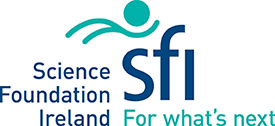APPLICATIONS OPEN FOR NEW PHD STUDENTS in ADVANCE – CRT

Applications are invited for new PhD Students within the SFI Centre for Research Training in Advanced Networks for Sustainable Societies (ADVANCE CRT)
For recruitment process and guidance on the procedures, click on the following link https://www.advance-crt.ie
The call deadline is Friday 5th March 2021 at 5pm.
You are STRONGLY encouraged to contact your preferred supervisors to discuss research project topics before submitting your application.
Example project title(s) of the ADVANCE Applicants can apply for are as follows:
Supervisor: Prof. Cormac Sreenan
TITLE: Future wireless networks for the data needs of connected and automated vehicles
ABSTRACT: The evolution of road vehicles towards automated driving is continuing at pace. As vehicle occupants play less of a role in vehicle control, it can be expected that the use of mobile entertainment (video, games, AR/VR) will surge, presenting a significant challenge for future wireless networks. In addition, many scenarios, such as cooperative perception, envisage the use of real-time high-definition video and sensor data transmission between vehicles for safety purposes. This project will investigate the data delivery needs of these applications with a view to conceiving and evaluating new mobile network architectures, protocols and resource management algorithms. The project will suit a student who has a keen interest in networking and has either experience or interest in using a combination of analytical (mathematical) and engineering-style (hands-on) methodologies for their research.
TITLE: Scanning and modelling of physical spaces using mm-wave wireless
ABSTRACT: Millimeter-wave (mm-Wave) radio is a key technology enabler for the ultra-high data rates of 5G cellular networks, and it is expected that 5G smart phones will be equipped with mm-Wave network interfaces. Interestingly, millimeter transmissions have utility beyond communication; previously they have been used extensively for shortrange radar detection and ranging. We envisage a future in which each person carries a smart phone equipped with mm-Wave which can opportunistically scan the adjacent environment and share the results in a participatory manner to allow accurate 3D models to be constructed and maintained. The research challenge is to devise techniques for capturing and analysing images using mmwave, so as to produce accurate 3D models of the physical space. The project will suit a student who has a keen interest in wireless networking and image processing and has either experience or interest in using a combination of analytical (mathematical) and engineering-style (hands-on) methodologies for their research.
Supervisor: Dr. Aisling O’Driscoll
Project 1: Network reliability is critical for nextgeneration vehicular services as many are linked to critical automotive functions so packet loss can jeopardise the safety of drivers, passengers and pedestrians. The network must be able to adapt its behaviour to prevent radio channel conditions becoming hazardous.
Project 2: Automated vehicles will act as mobile data centres gathering TBs of sensor dat (video, radar, lidar etc). Envisaged applications include cooperative sensing/perception, platooning like maneouvering and remote driving, all of which will radically change the transportation sector improving traffic efficiency, vulnerable road user (VRU) safety and optimising efficiency of fuel, road infrastructure and labour. However existing spectrum does not support the necessary data rates and latencies and so it is necessary to investigate alternative spectrum to fulfil the requirements of the envisaged applications.
Supervisor: Dr. Ahmed Zahran
Title: Leveraging crowd-sourced smartphone sensor data for intelligent bus transportation
Group transportation systems are key for sustainable living. However, the lack of accurate schedule information represents a major obstacle for the wide adoption of group transportation, e.g. busses. This project aims to develop solutions that leverage crowd-sourced data from system users to provide accurate information for both end-users and system operators.
Suggested Secondary Supervisor: Dr. Ivana Dusparic (TCD)
Title: Optimizing the delivery of future multimedia applications in WiFi 7
The traffic demand for future applications, e.g., augmented and virtual reality, exceeds the capabilities of existing WiFi networks. To meet these emerging demands, WiFi 7 (IEEE 802.11be) integrates many features, at both PHY and MAC levels, to facilitate Extremely High Throughput (EHT) for these applications. This project focuses on leveraging these features to ensure the optimized delivery of future multimedia applications.
Suggested Secondary Supervisor: Prof. Cormac Sreenan
Title: Machine learning-based throughput prediction for wireless networks
Accurate throughput prediction is an essential element for efficient network and application operation. Using traditional time-series analysis techniques do not accurately predict the throughput leading to degraded application performance. Machine learning techniques are known for their capability to learn patterns in complex data to provide accurate estimates for estimated parameters. This project focuses on developing novel machine learningbased mechanisms that process cross-layer information (PHY and higher) to accurately predict the network throughput for various applications.
Secondary Supervisor: Prof. Cormac Sreenan
Mobile and Internet Systems Laboratory
Contact us
Department of Computer Science, Western Gateway Building, University College Cork, Western Road, Cork, Ireland.
